MercoPress. South Atlantic News Agency
Tag: 2014 FIFA World Cup
-
Thursday, May 15th 2014 - 00:22 UTC
Brazil forecasts 3bn boost to the economy with 3.7 million World Cup visitors
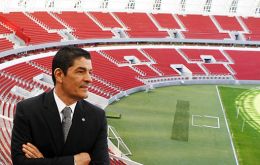
Brazil forecasts that the estimated 3.7 million people expected to visit during the World Cup, including Brazilian and foreign tourists, will boost the country's economy to the tune of 3.03bn. dollars.
-
Wednesday, May 14th 2014 - 04:54 UTC
Rousseff warns about protests during the World Cup: 'they must be peaceful'

President Dilma Rousseff repeated Tuesday that Brazil is “a democratic country” and that its government guarantees the right to “peaceful protest” during the World Cup soccer competition, which begins June 12. However protests must not harm the Cup events in any way.
-
Wednesday, May 14th 2014 - 00:09 UTC
Rio bus drivers on a 48-hour strike leave tens of thousands stranded
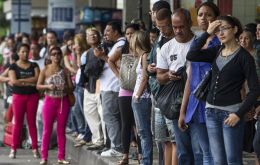
Rio de Janeiro bus drivers on Tuesday began a 48-hour strike that left tens of thousands of people without transportation and caused huge problems in Brazil's second-largest city. Participation in the strike was greater than in the 24-hour effort staged last Thursday when on the streets of Rio scarcely a single bus was to be seen.
-
Tuesday, May 13th 2014 - 18:59 UTC
Several world leaders expected for the coming World Cup in Brazil
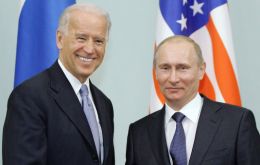
The Brazilian government is counting on a strong presence from world leaders during the football World Cup, which kicks off on June 12. Cristina Fernández, German Chancellor Angela Merkel and US vice-president Joe Biden are among the dignitaries expected to attend.
-
Tuesday, May 13th 2014 - 08:14 UTC
Brazil seals land borders with 30.000 troops ahead of the World Cup
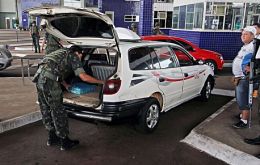
Brazil began deploying over the weekend some 30,000 troops to secure its borders as it prepares to host the World Cup that kicks off next month. The operation involving the army, navy and air force will extend over the 16,900-kilometer frontier separating the South American giant from its 10 neighbors.
-
Monday, May 12th 2014 - 06:48 UTC
Brazil downplays, mathematically, the threat of dengue for Cup tourists

A study by Brazilian experts calculates that, in the worst case scenario, just 100 of the 600,000 foreign tourists who will visit Brazil during the World Cup soccer tourney scheduled to begin in June, or less than 0.02% of the total visitors, will contract dengue during their stay in the country.
-
Monday, May 12th 2014 - 06:38 UTC
Pelé desperate to exorcise Brazil's defeat and loss of the World Cup to Uruguay in 1950
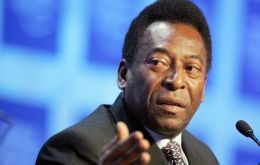
Brazil's Pelé, the legendary attacker believes that his country's national team has the ideal opportunity to exorcise the demons of their 2-1 infamous loss to Uruguay at the Maracana 64 years ago, more precisely 16 July 1950.
-
Friday, May 9th 2014 - 07:35 UTC
Chaos in Sao Paulo and Rio, as protestors take to the streets 35 days ahead of the Cup

Two of Brazil's major cities which will be hosting matches of the World Cup in 35 days time, were in chaos on Thursday because of protests from the Landless Peasants and Homeless Workers in Sao Paulo and a bus drivers' strike in Rio do Janeiro.
-
Wednesday, May 7th 2014 - 07:22 UTC
Dilma pledges economic growth with contained inflation following negative stats
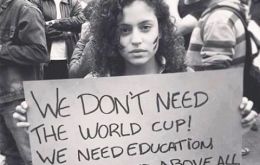
Brazilian president Dilma Rousseff said in a statement that her government ensures sustained economic growth, with contained inflation. The announcement followed market estimates saying that Brazil's GDP expansion this year would be down to 1.63%, below official and private recent estimates above 2%.
-
Wednesday, May 7th 2014 - 07:16 UTC
“Manaos less riskier than Iraq” Brazilian Sports minister tells English media
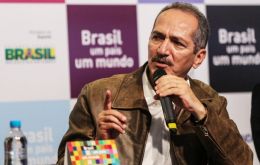
Brazil's Sports minister Aldo Rebelo minimized the possibility of violence during the coming World Cup and replied to the British media that the Amazon city of Manaos, where England will be playing a match, will not be riskier that war zones.
